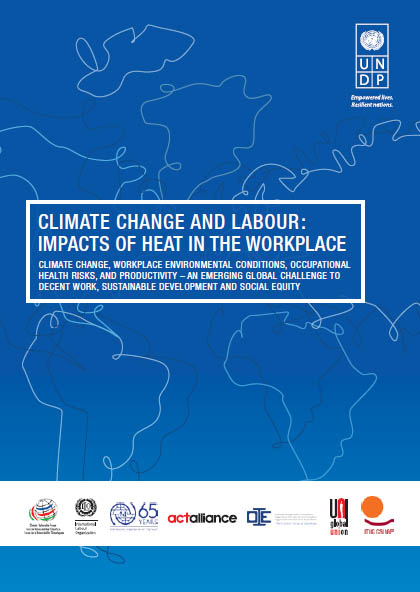Excessive heat while working, generally at temperatures above 35º Celsius, creates occupational health risks and reduces work capacity and labour productivity (Parsons, 2014). Maintaining a core body temperature close to 37ºC is essential for health and human performance, and large amounts of sweating as a result of high heat exposure while working creates a risk of dehydration. Excessive body temperature and/or dehydration causes “heat exhaustion”, slower work, more mistakes while working, clinical heat effects (heat exhaustion, heat stroke, and even death; Bouchama and Knochel, 2002) and increased risk of accidental injuries (Schulte and Chun, 2009). These health effects lessen labour productivity, whether the worker is in paid work in a range of industries, in traditional subsistence agriculture or farming, or in other daily life activities (examples in Figure 1). Daily family activities, such as caring for children or the elderly, are equally affected (…)
Read more at: Climate Change and Labour – Impacts of Heat In The Workplace








